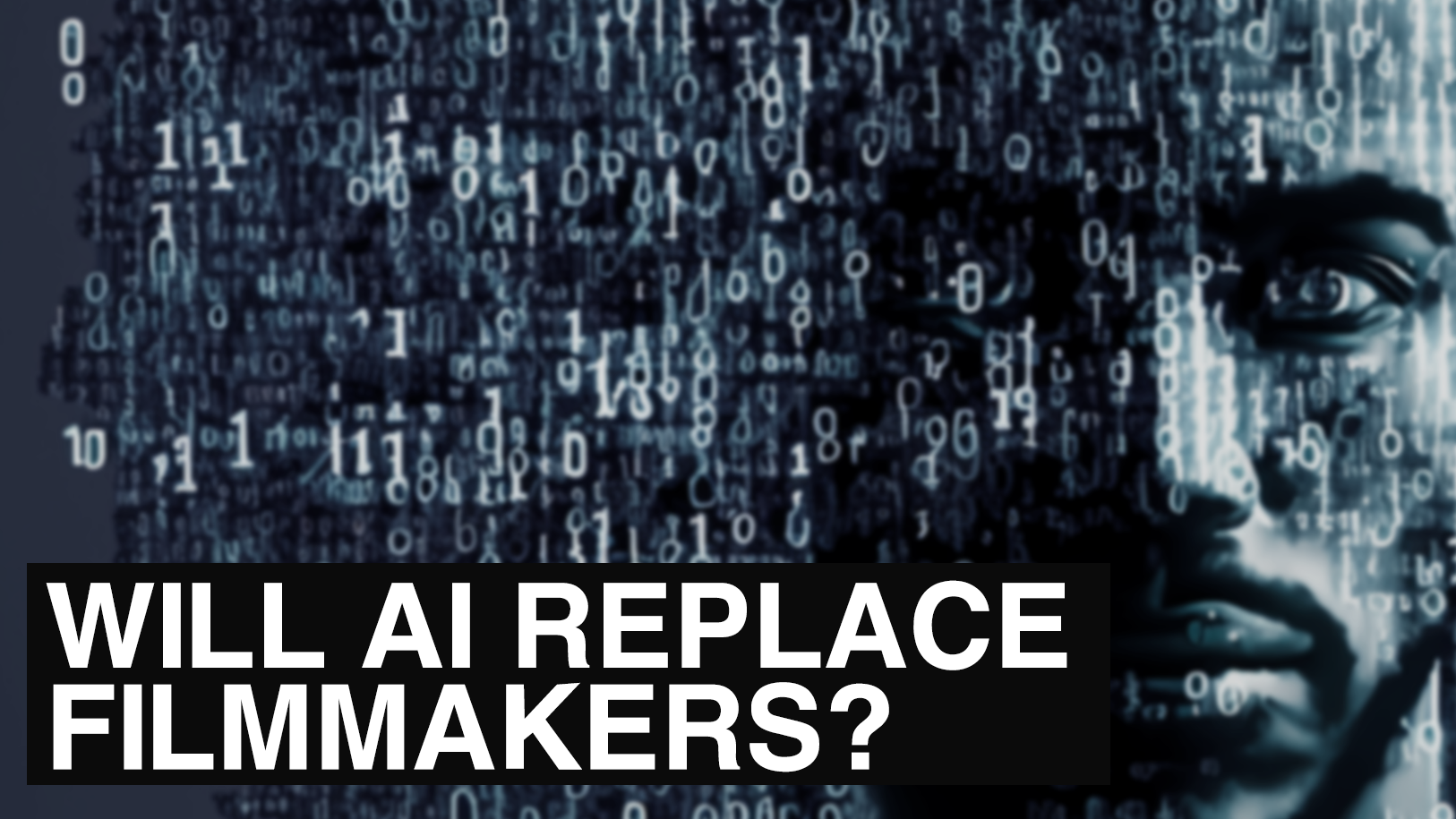Page Content:
- Introduction to AI within video production
- What is AI and why is it a concern to video production?
- How can AI support video production today?
- What AI tools are currently available for video production?
- AI based video tools
- Text based AI tools
- Digital Avatar Creators
- Video tools with AI enhancement (Premiere Pro, Photoshop, After Effects)
- What the future holds?
- How to insulate yourself against the threats of AI
AI within video production
Over the past year, the looming influence of AI on film production has become increasingly apparent. The Hollywood writers strike, a notable event spurred by concerns over the growing integration of AI in script writing (among others…), continues to reverberate throughout the industry, with disruption in many areas of video and film production.
Concurrently, topics like Deepfakes and image likeness ownership a have seized attention in the realm of feature film production. Yet, amidst these discussions, there remains a pressing question for us at the other end of the industry: What implications does this AI-driven landscape hold for corporate and branded video production? Are our roles under threat, or is this concern overstated?
In this article I aim to lay out the facts, what are threats and to who and how we in production can embrace AI with the aim of supporting our roles within the industry.
What is AI and why is it a concern to video production?
AI, short for artificial intelligence, refers to the replication of human-like intelligence in machines. These machines are programmed to perform tasks such as problem-solving, learning, understanding natural language, recognizing patterns, and making decisions. In the realm of video production, AI's significance has grown substantially.
While AI holds the potential to disrupt several aspects of the corporate video production industry, it's improbable that it will completely eliminate the industry. Instead, AI is poised to reshape the industry by automating specific tasks and increasing efficiency.
Due to the nature of AI, it excels at replicating previous creations but falls short in creatively reimagining problems. Consequently, roles involving the meticulous analysis of extensive video data and the implementation of systematic edits may be at risk. However, positions that require innovative interpretation of client briefs to produce content that resonates across multiple platforms and captivates audiences are less likely to be fully automated. As a freelance filmmaker, a significant portion of the job involves creatively deciphering clients' intentions from often ambiguous briefs. This underscores the indispensable role of human interpretation in the process.
Currently, AI tends to replace human involvement in areas where clients utilize text-to-video services. These services convert text prompts into videos, which often exhibit a lack of fluidity and realism. While suitable for certain applications such as website help sections or product demonstrations, they are unlikely to completely supplant our industry. The bulk of corporate projects I engage with focus on showcasing individuals and their messages.
Anecdotally, I have heard stories of entire video production teams being fired and replaced by AI. Whilst this is very sad for those individuals, at a time where our industry is already struggling, it should be questioned whether that content that’s being produced is valued highly enough to deserve having humans dedicate their working life to.
In my personal opinion, we should approach AI with a level of skepticism while recognizing its potential benefits. While some jobs may be displaced, we should acknowledge how AI can expedite processes for those proficient in its use.
How can AI support video production today?
Whilst a lot of us have either seen (and quite probably been impressed) by sentences spat out of ChatGPT or images from Mid Journey, apart from novelty factor alone, how can these be utilised in a professional capacity today?
The place in which AI seem to be making a difference today, is in those early stages of the production process. Funnily enough, the area which a lot of the Hollywood Strikes where based around… in script generation and storyboard development. These are rolls we typically don’t have budget to outsource, but using the tools of AI we can create a basic outline of a script which input into an AI tool can be improved on and professionalised. Likewise, using tools like Midjourney, we can take a script and build out a storyboard shot by shot, figuring out shot sizes and compositions, ensuring both client and video production team are on the same page before the shoot day. Previously, this would take hours of Google searches and clunky photoshop edits to create a very unrealistic storyboard.
What AI tools are currently available for video production?
AI based generative image tools
Midjourney – Midjourney is a text input tool which outputs AI generated images.
Runway Gen-2 - Runway takes image and text inputs and generates video content from that. Currently it’s a bit hit and miss, although the potential is quite mind blowing if used correctly.
Tools which act as replacement for a video editor
Peech AI - Peech AI generate branded cut downs of longer form videos. It’s clunky but the potential to replace unnecessary human editing is there.
Descript – Descript allows editing purely by text input. This has potential to replace a video editor for part of the process, however branding, titles and converting to different aspect ratios may leave a bit to be desired.
Veed.io – Veed.io is a general suite of tools which allows for the creation of AI supported video content.
Input: How AI is going to replace video production
[Scene: Professionally dressed scriptwriter sitting in front of a sleek, modern backdrop]
Scriptwriter: "Hello everyone, today I want to discuss a topic that may seem controversial to many of us in the video production industry. Artificial Intelligence, or AI, is poised to revolutionize the way we create videos. Some may view this as a threat to our profession, but I see it as an exciting opportunity for growth and innovation. So let's dive in and explore how AI is going to replace video production."
[Cut to scenes of AI technology in action, creating stunning visuals, editing footage, and generating scripts]
Scriptwriter: "As an industry that constantly evolves, we must embrace the potential that AI brings to the table. From automated video editing to scriptwriting and even generating lifelike avatars, AI technology is already transforming the way we produce videos. With AI, we have access to a vast array of tools that can streamline our workflow, save time, and enhance creativity."
[Cut to interviews with experts in AI and video production industries providing insights]
Expert 1: "AI allows us to analyze massive amounts of data and use machine learning algorithms to better understand what resonates with viewers. This means we can create more targeted and effective videos, reaching our audience on a deeper level."
Expert 2: "Not only does AI speed up the editing process, but it also enables us to experiment with different styles, effects, and formats. It opens up endless possibilities for storytelling and pushes the boundaries of what we once thought was possible."
Scriptwriter: "Of course, AI will never replace the creative vision and human touch that we, as video production professionals, bring to the table. Our role in curating captivating narratives, making strategic decisions, and infusing emotion into videos is irreplaceable."
[Cut to scenes of a scriptwriter collaborating with AI technology]
Scriptwriter: "Imagine a future where AI serves as our supportive companion, an assistant that helps us achieve our creative goals more efficiently. By harnessing AI's capabilities, we can free up time to focus on the parts of video production that require our unique skills and expertise."
[Cut to testimonials from professionals who have successfully integrated AI into their workflow]
Professional 1: "Incorporating AI into our video production process has elevated the quality of our work, allowing us to deliver more impactful videos in shorter timeframes. It has revolutionized how we approach our projects."
Professional 2: "AI has not only improved our efficiency, but it has also helped us unlock new opportunities. By embracing this technology, we have expanded our client base and tackled projects we once deemed impossible."
Scriptwriter: "So, instead of fearing the rise of AI in video production, let's seize the opportunity to adapt, evolve, and push the boundaries of our own creativity. By embracing AI, we can take our work to new heights and create videos that leave a lasting impact on our audience."
[Closing scene of the scriptwriter confidently looking into the camera]
Scriptwriter: "Let's embrace the future of video production, where AI becomes our trusted ally, unlocking endless possibilities. The future is bright, my friends. Let's harness the power of AI and embark on this transformative journey together."
[Fade out with a call-to-action encouraging viewers to share their thoughts and experiences on AI in the comment section]
Scriptwriter (voice-over): "Join the conversation and share your insights below. Together, let's shape the future of video production powered by AI. Stay inspired and keep creating!"
[End of video]
An example of a script produced entirely using Veed.io
Digital Avatar Creators
Synthesia – Synthesia takes text input and outputs a talking avatar. Not entirely life like but has potential to replace a studio shoot with an actor for those projects where clients are looking to slash budgets.
Text based AI tools
Chat GPT – One of the most well know text generation tools. Great for helping in text generation or for performing certain tasks (i.e. make this email sound more professional)
Video tools with AI enhancement (Premiere Pro, Photoshop, After Effects, Audition)
For most us who edit, we’ve already started to see AI being implemented within our NLE software. For example, in Premiere Pro… the text transcription tools are game changing, allowing the generation of scripts and subtitles massively speeding up a laborious process.
Things like audio enhancement and noise removal are being introduced too, replacing the need for much more expensive plugins that do this. Photoshop’s Generative Fill tool is very powerful too, with implementation in After Effects.
With all these features, they speed up many processes for editors that would have required a lot of additional time previously. However, with all of them, they do require human intervention and monitoring. I’ve had mixed results with many of these features, but working with them and I can drastically speed up certain elements of the process.
What the future holds?
Looking forward, the future of AI in filmmaking is poised to witness a gradual displacement of manual and labor-intensive processes. We can anticipate continuous improvement in AI models, leading to enhanced quality of AI-generated content. As AI technology progresses, the distinction between AI-generated and filmed content is likely to diminish, with AI-generated content approaching parity with traditional filmed content.
While this evolution may result in job losses, a trend observed across various industries impacted by technological advancements, it's important to note that AI is expected to primarily serve as a supporting mechanism in video production. Those who embrace AI are likely to thrive amidst these changes, leveraging its capabilities to enhance their creative output and efficiency.
How to insulate yourself against the threats of AI
The best way to insulate yourself against the threats of AI within video production, is to focus on producing bespoke content that is designed specifically to engage a certain audience or provoke a certain emotional response. For example, wedding videographers will never be replaced entirely my AI. In the same way, CEOs are going to need to address colleagues in company wide broadcasts. Ensuring that you use AI to speed up and automate process where you can, focusing on content where that human interaction make the difference and letting go of mundane and repetitive projects, where AI can do as equally good a job in a clients’ eyes will ensure that you don’t get caught up in AI.

